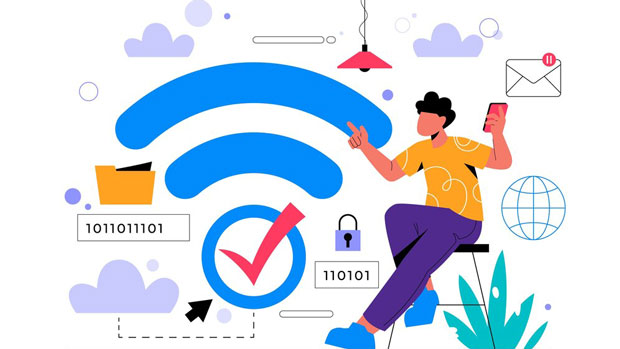In the modern digital world, data has become a valuable asset for enterprises, driving decision-making, improving customer experiences, and fostering innovation. As businesses strive to gather valuable insights, one key challenge they face is overcoming data access barriers, such as web blocks and restrictions. This is where Web Unblocker comes into play, offering a solution that enables businesses to seamlessly collect data from various online sources, regardless of restrictions. By removing these barriers, Web Unblocker has the potential to become an essential core component in enterprise data collection strategies. Understanding Web Unblocker: A Revolutionary Tool for Data CollectionWeb Unblocker is a tool designed to bypass geographical restrictions, firewalls, and other web-blocking mechanisms that can hinder a business's ability to access online data. In essence, it acts as a bridge, allowing enterprises to reach and gather information from web resources that would otherwise be inaccessible. As data-driven strategies gain importance in today's competitive business landscape, tools like Web Unblocker are crucial for businesses looking to expand their data collection capabilities.Businesses often rely on data from multiple sources, including market research, competitor analysis, social media, and customer behavior insights. However, many of these sources are behind various barriers, such as location-based restrictions or website security measures, making it difficult for companies to scrape the necessary data. Web Unblocker solves this problem by providing a way to circumvent these restrictions, ensuring that enterprises can access valuable data from all corners of the internet.The Growing Demand for Data AccessAs the digital landscape evolves, so does the demand for comprehensive data collection. Enterprises now need to collect data not just from their websites but from external sources, such as competitor websites, news sites, social media platforms, and other public-facing online resources. These diverse sources provide valuable insights that help businesses refine their strategies, understand market trends, and improve their products or services.However, many of these external data sources impose restrictions, often limiting access to specific regions, or blocking data scraping techniques due to concerns over privacy, security, or intellectual property. Web Unblocker addresses these challenges by allowing businesses to bypass such restrictions, ensuring that enterprises can access and collect data from the most relevant sources without hindrance.The Role of Web Unblocker in Enhancing Data Collection EfficiencyData collection is a time-consuming and resource-intensive process, especially when trying to gather information from multiple, diverse web sources. Without a tool like Web Unblocker, businesses may face difficulties in accessing important data, forcing them to spend additional time and effort finding alternative ways to gather insights. Web Unblocker not only removes barriers to data access but also streamlines the entire data collection process. With its ability to bypass geographical restrictions and security mechanisms, businesses can quickly and efficiently gather data from a variety of sources, ensuring that they do not miss out on critical insights. This leads to more accurate, timely, and comprehensive data that can significantly enhance decision-making processes.Improving Market Research with Web UnblockerMarket research is a key area where Web Unblocker can have a significant impact. In order to stay competitive, businesses must constantly monitor their competitors, track industry trends, and gather feedback from potential customers. These activities require access to data from a wide range of online sources, such as competitor websites, forums, review sites, and social media platforms.Unfortunately, many of these sources are often restricted based on geographic location, requiring businesses to overcome firewalls and other access controls. Web Unblocker offers a straightforward solution, enabling businesses to collect data from these critical sources with ease. By overcoming web-blocking mechanisms, businesses can improve their market research efforts and make more informed, data-driven decisions.Web Unblocker and Customer Behavior AnalysisIn addition to market research, understanding customer behavior is another area where Web Unblocker plays a crucial role. Customer insights are invaluable in shaping product development, marketing strategies, and customer engagement. However, gathering this data often involves accessing customer interactions and reviews across different platforms, some of which may have restrictions in place.With Web Unblocker, businesses can unlock these platforms and gather customer feedback from a variety of sources, such as e-commerce sites, review sites, and social media platforms. This broader access allows for a more complete understanding of customer preferences, pain points, and expectations, enabling businesses to better tailor their offerings to meet customer needs.Enhancing Competitor AnalysisCompetitor analysis is another area where Web Unblocker proves to be an indispensable tool. In order to gain a competitive edge, businesses need to track their competitors' activities, including product offerings, marketing strategies, and customer engagement. However, many competitor websites have measures in place to prevent data scraping, which can make it challenging for businesses to gather this information.Web Unblocker allows companies to bypass these restrictions, ensuring they can continuously monitor their competitors' websites and gather valuable data. By gaining deeper insights into competitor strategies and performance, businesses can adjust their own strategies and stay ahead of the competition.Web Unblocker’s Role in Scaling Data CollectionAs businesses grow, so does their need for larger and more diverse data sets. Web Unblocker supports the scaling of data collection efforts by enabling businesses to access a wider range of data sources. It helps companies to not only collect data from various geographic regions but also access different types of data, including structured and unstructured data, to get a more holistic view of the market.The ability to scale data collection without being hindered by geographical or security restrictions gives businesses a significant advantage, allowing them to stay agile in a rapidly changing market environment. By ensuring access to a wealth of data sources, Web Unblocker helps businesses make faster, more informed decisions as they scale.Ensuring Compliance and SecurityWhile Web Unblocker provides a means to bypass restrictions, businesses must also ensure that they remain compliant with legal and ethical standards in their data collection efforts. Web Unblocker offers a secure and ethical way of accessing data, ensuring that businesses can collect valuable information without violating any laws or infringing on privacy.It is essential for businesses to use Web Unblocker in conjunction with proper data collection policies and practices to ensure that they adhere to all applicable regulations, including data privacy laws. By ensuring compliance, businesses can collect data responsibly and avoid potential legal pitfalls.In conclusion, Web Unblocker is fast becoming an essential tool for enterprises looking to collect data from a wide array of online sources. By removing the barriers that prevent access to valuable information, Web Unblocker empowers businesses to gather timely, comprehensive, and actionable data that can drive strategic decision-making. Whether used for market research, competitor analysis, or customer behavior insights, Web Unblocker enables businesses to overcome restrictions and unlock the full potential of the digital world. As data continues to be a cornerstone of business success, Web Unblocker is poised to become a core component of enterprise data collection strategies worldwide.
Nov 10, 2025



































































